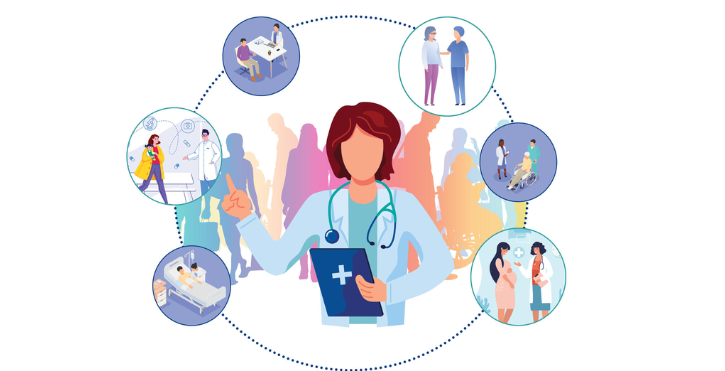
The journey to becoming a Women’s Health Nurse Practitioner (WHNP) is a fulfilling path for nurses who wish to specialize in women’s health and offer comprehensive care. As primary care providers, WHNPs play a crucial role in the well-being of women across their lifespan. To embark on this career, one must navigate through specific educational qualifications, certification, and licensure processes. In this article, we’ll discuss the steps needed to join this rewarding field.
Understanding the Role of a Women’s Health Nurse Practitioner
Women’s Health Nurse Practitioners are advanced practice registered nurses who focus on the unique health needs of women, combining clinical expertise in diagnosing and treating health conditions with an emphasis on disease prevention and health management. WHNPs offer a range of services, including gynecological exams, family planning, and menopause management. Their patient-centered approach often incorporates counseling and education, guiding women to make informed health decisions.
Educational Pathways to Becoming a Women’s Health Nurse Practitioner
 Nurses aspiring to become WHNPs must first obtain a Bachelor of Science in Nursing (BSN) degree and gain Registered Nurse (RN) licensure. Upon securing experience in the field of nursing, preferably with a focus on women’s healthcare, candidates may then enroll in a graduate program specifically tailored for nurse practitioners. It is here that advanced coursework combined with clinical practicums prepares nurses for the complexity of the WHNP role.
Nurses aspiring to become WHNPs must first obtain a Bachelor of Science in Nursing (BSN) degree and gain Registered Nurse (RN) licensure. Upon securing experience in the field of nursing, preferably with a focus on women’s healthcare, candidates may then enroll in a graduate program specifically tailored for nurse practitioners. It is here that advanced coursework combined with clinical practicums prepares nurses for the complexity of the WHNP role.
A Master of Science in Nursing (MSN) or a Doctor of Nursing Practice (DNP) degree with a concentration in women’s healthcare is the next pivotal step. These highly specialized programs offer in-depth training in areas such as reproductive healthcare, prenatal and postpartum care, primary care for women, and leadership in nursing practice. Detailed study and hands-on experience instill the skills necessary to excel as a WHNP.
If you’re interested in pursuing an education to become an NP, then you’ll want to start searching for high school scholarships to help pay your way through school. Scholarship opportunities will make it easier for you to pursue higher education without having to take out student loans.
Nursing schools and universities, like the University of Cincinnati, now provide online options for MSN degrees that allow nurses to balance their continuing education with professional commitments. These online alternatives—such as https://online.uc.edu/masters-programs/msn-womens-health-nurse-practitioner/—not only offer flexibility but also maintain the high standards of traditional, on-campus programs.
Certification and Licensure Requirements for NPs
Upon completion of their graduate studies, aspiring WHNPs must then secure national certification. The National Certification Corporation (NCC) offers a Women’s Health Care Nurse Practitioner exam, which assesses the knowledge necessary for entry-level WHNPs. Passing this exam validates a nurse’s qualifications to practice in the WHNP specialization.
With certification in hand, the next legal requirement is obtaining state licensure. Each state’s Board of Nursing outlines the specifics of nurse practitioner licensure, which typically includes submitting proof of education, certification, and sometimes additional clinical practice hours. It is essential for nurses to be aware of their state’s laws and regulations to ensure they meet all necessary criteria for practice.
Gaining Experience and Specialization in Women’s Healthcare
Experience in the field is invaluable for WHNPs, providing the real-world context that builds upon the foundational knowledge gained through education. Entry-level WHNPs often begin their careers by working under the supervision of experienced practitioners or in interdisciplinary teams that specialize in women’s healthcare. This mentorship and collaborative work environment allows new WHNPs to hone their clinical judgment and skills.
Many WHNPs choose to further specialize within the field of women’s healthcare, focusing their practice on specific populations or health issues. Areas of focus may include fertility, sexual health, oncology, or high-risk obstetrics. Specialization can lead to unique opportunities within academic settings, private practice, or community health, enabling nurses to deeply impact specific health outcomes for women.
Career Advancement and Opportunities for Nurse Practitioners

With the foundation of a solid education and certification, the career trajectory for NPs can be both dynamic and rewarding. Leadership roles in healthcare organizations, policy advocacy, and healthcare education are some of the avenues where experienced WHNPs can further influence the field of women’s healthcare. As industry leaders, they can drive change and innovation in clinical practice and healthcare delivery.
The evolving landscape of healthcare often presents new challenges and demands, but also opens doors for NPs to expand their practice scope and settings. Telehealth, for example, has grown considerably in recent years, enabling NPs to provide care to women who may otherwise have limited access to services.
Altogether, the path to becoming a Women’s Health Nurse Practitioner encompasses rigorous education, certification, and a commitment to lifelong learning. WHNPs have the opportunity to shape the field of women’s healthcare, improve patient care, and progress their careers in a variety of challenging and rewarding roles.






